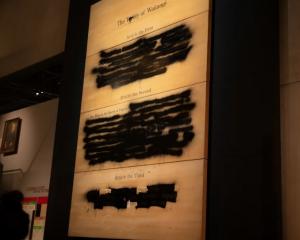The increase in tobacco tax in January may have pushed the smoking rate below 16 per cent, a survey suggests.
Released today to coincide with World Smokefree Day, the survey of more than 200 smokers found a 4.5 per cent reduction in smoking prevalence following the 11 per cent tax increase, said Dr Murray Laugesen.
"That equates to a 0.75 percentage point reduction in the [national adult] smoking prevalence which is currently 16.5 per cent. The tax rise could have brought it below 16 per cent."
Dr Laugesen is among researchers who urged the Government to adopt much bigger tax increases, arguing that on current policies, New Zealand will not reach the 2025 target of a smoking rate below 5 per cent.
He said the most important finding of the survey, which he did with Canterbury University researchers, was a decrease in the strength of psychological addiction to tobacco, as measured in questionnaires.
Professor Randolph Grace, from the university's psychology department, said respondents reported significantly less addiction to smoking in February and March than last year before the January tax rise.
"Those that had relatively more reduction in strength of addiction also reported that they smoked fewer cigarettes a day and were more likely to have quit earlier this year."
The survey found that smokers of factory-made cigarettes - the majority of the sample - were more likely to have quit than those who smoked roll-your-owns.
"Those who had not quit smoking decreased cigarettes smoked a day by an average 2.1 per day from 14.2 to 12.1 cigarettes a day, a 15 per cent decrease," said Professor Grace.
"The results show that the smokers are smoking less and spending less on cigarettes. The data suggests that the government tax rise is likely to be having a beneficial effect ...
"Our survey provides some reasons to be optimistic that the government tax increase is successful in its goal of reducing smoking."
The Government lifted loose-tobacco tax by 25 per cent in 2010 and the tax on factory-mades by 10 per cent, with further rises of 10 per cent on all tobacco in 2011 and 2012. From January this year, the Government began a four-year programme of tobacco tax increases of 10 per cent plus inflation per year. It is expected that in 2016 a cheaper pack of 20 cigarettes will cost more than $20, compared with $14.50 last year.
Dr Laugesen said there were uncertainties with the reduced-prevalence finding, such as whether the survey participants were more health conscious than smokers in general, but the results still gave hope that the tax rise had had an effect.
- Martin Johnston of the NZ Herald












